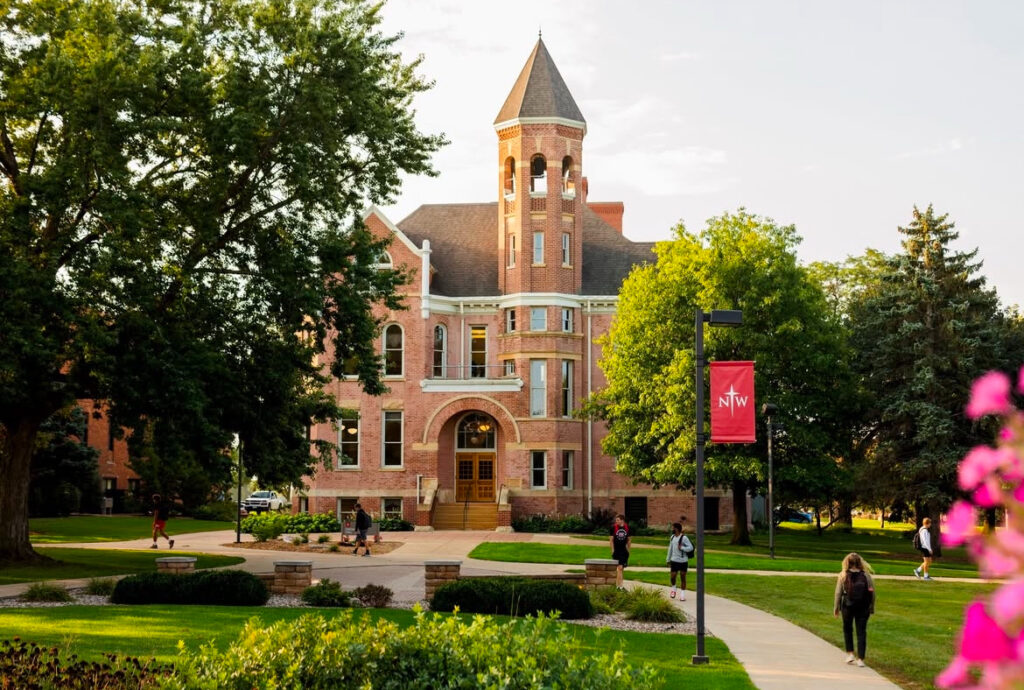Among other things, Northwestern College is well known for its stand-out Christian academics. As a part of their Christian roots, they are founded on the theology of the Reformed Church of America, otherwise known as the RCA.
Despite the college’s denomination, most students who attend NW do not come from a Reformed background, and many are not even clear on the exact beliefs and doctrines that the RCA holds and how that impacts their education.
So what are the beliefs of the Reformed Church of America? The Reformed Church of America is a branch of the larger Reformed Church, and a close relative to the Christian Reformed Church, which our neighbors at Dordt are affiliated with.
The RCA found its beginnings on a Sunday in 1628 when around 50 people gathered for the Lord’s Supper in the small colonial town of New Amsterdam. By taking part in the Lord’s Supper together, this group of people not only started a new church in their new world, but also a new denomination.
Like other branches of Protestantism, the Reformed Church of America has its roots in the Protestant Reformation, but the Reformed Church has its origin from John Calvin’s theology. When the Reformed Church of America started, it was originally called the Dutch Reformed Church, due largely to the fact that most of the congregation were Dutch immigrants. Even now many members of the Reformed Church are still of Dutch heritage. This is very evident in Orange City, a city with strong Dutch heritage, where most of the churches are Reformed.
As mentioned earlier, the Reformed Church of America, which NW is affiliated with, is close in doctrine to the Christian Reformed Church, which Dordt is affiliated with.
Seeing as our rivals are associated with the Christian Reformed Church, we have to wonder, what is the difference between the two? Are these two denominations also rivals? The answer to this is an abrupt “no,” as the two denominations are far from being called “rivals.” The commonalities of these two denominations makes them more like cousins than anything else. They both believe in the same main points of theology, but differ only on a few lesser points of doctrine.
An example of this is the ordination of women.While the Reformed Church of America has ordained women as ministers and elders for over 50 years, the Christian Reformed Church does not ordain women at all.
While the differences in doctrine between the denominations are all very interesting, what does this mean to students at NW? NW was founded as a classical academy by a Reformed pastor in 1882. He established this academy with the purpose to prepare young people for college and ministry. He laid the foundation with Reformed doctrine, and committed the school to a Christian standard. On the website, NW now states that they “identify as Reformed in commitment, evangelical in engagement and ecumenical in spirit.”
The Reformed doctrine has committed NW to a longstanding Christian foundation. NW is evangelical in its welcoming spirit and commitment to sharing the gospel, and the campus is one in spirit in the body of Christ. In addition, NW’s mission statement is to “engage students in courageous and faithful learning and living that empowers them to pursue God’s redeeming work in the world.”
This mission statement also emphasizes another aspect of their reformed faith: the restoration. Reformed theology places a particular emphasis on restoration: looking forward to the day when Jesus will return and fully restore all things to perfection. For now, He works through His people to complete His redeeming work in the world.
One way this is evident is through the NW theatre department’s simple but powerful motto said before and after every production: “To the King. To the Restoration.”
Overall, from what students have heard at NW, the college has done an excellent job of holding true to their Christian faith, even when many other Christian colleges have not. NW remains true to their doctrine, but does not push any points of doctrine on their students. The college teaches the gospel and the Bible clearly, but invites students to discuss, wrestle and determine what they believe for themselves.

Photo courtesy of NW Mar Com.